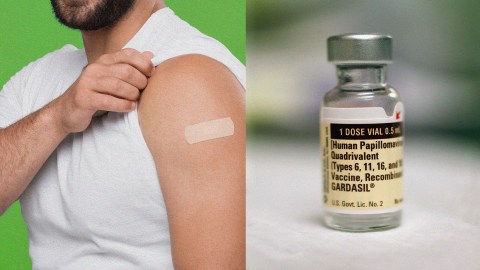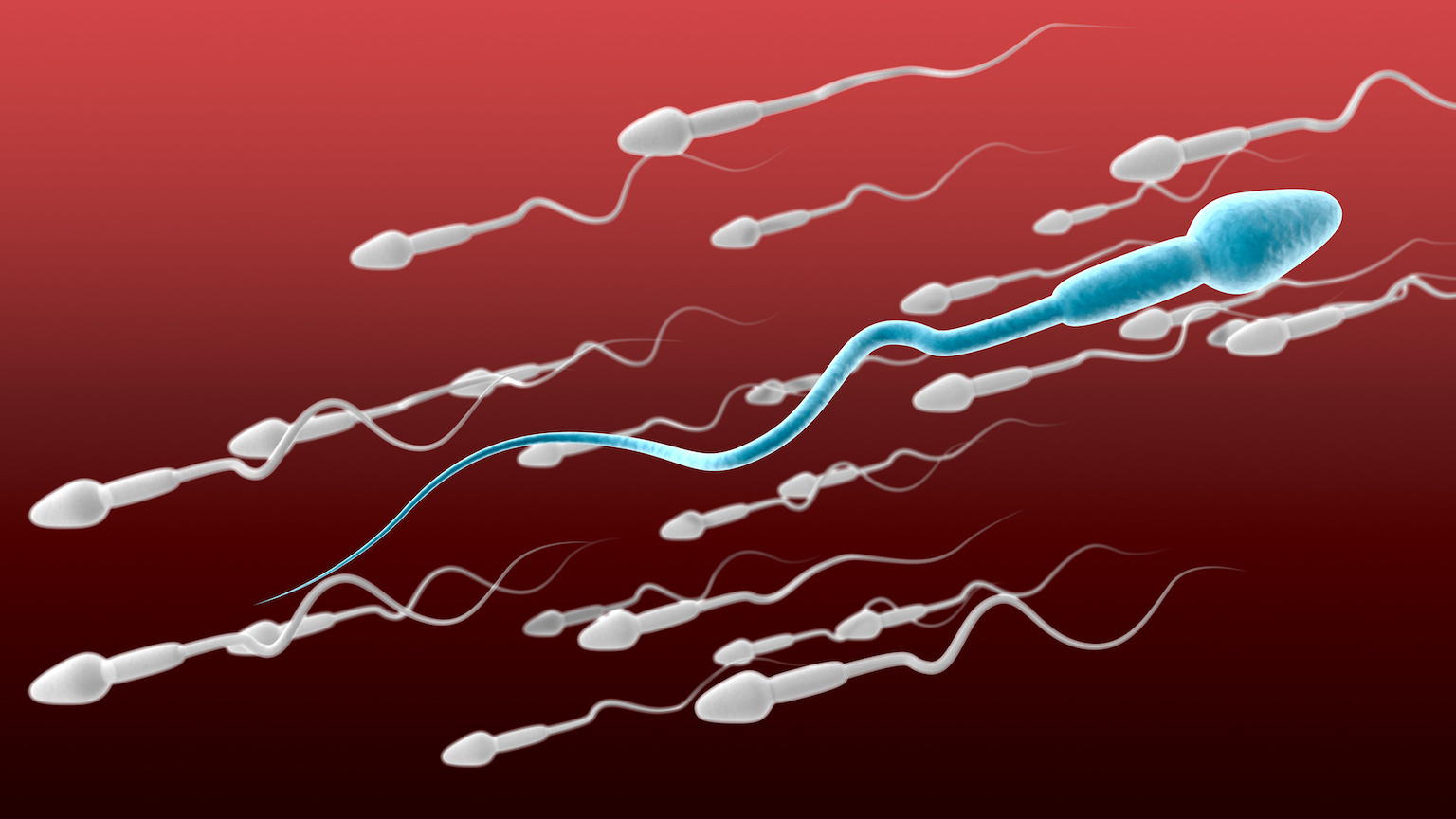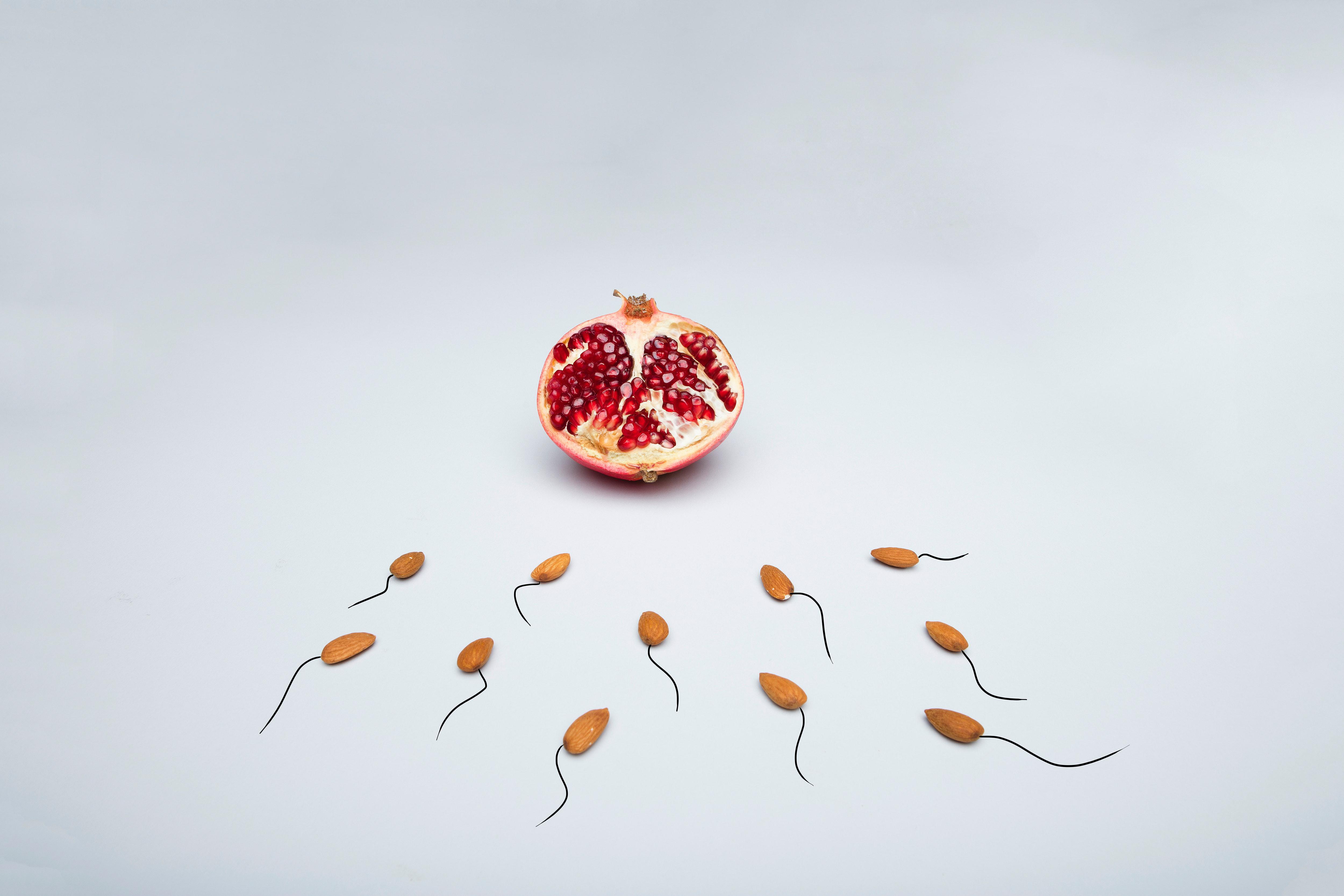Fertility: Another reason for men to get the HPV vaccine

- Human papillomavirus (HPV) is the most common sexually transmitted infection. 90% of sexually-active men and 80% of sexually-active women become infected during their lifetime.
- The virus can cause genital warts as well as numerous cancers. Of these, the most deadly is cervical cancer, which kills 340,000 women a year.
- There are now three effective vaccines that protect against an HPV infection for decades. Recent research suggests that HPV could cause male infertility, giving young men and boys another reason to get vaccinated.
If you’re sexually active, you will (almost certainly) contract a sexually transmitted infection (STI). This fate is largely predetermined thanks to the most common STI: human papillomavirus (HPV). It’s so ubiquitous that 90% of sexually active men and 80% of sexually active women become infected during their lifetime.
Though HPV is infamously known for causing unsightly warts around the genitals, most cases are actually asymptomatic and resolve quickly without notice. Some infections, however, ultimately lead to cancers of the cervix, penis, anus, mouth, or throat. Of these, cervical cancer is by far the most dangerous. It kills more than 340,000 women every year.
Thankfully, there are three safe and highly effective vaccines available. If given as recommended during adolescence, they can provide decades of protection against the most dangerous types of HPV that cause genital warts and cancer. Since the vaccines’ arrival over fifteen years ago, rates of genital warts and HPV-linked cancers have fallen precipitously, raising hopes that cervical cancer could actually be eliminated.
Though the HPV vaccine faced some early backlash, particularly from conservative groups who thought it encouraged promiscuity, uptake in the United States has been solid. Nearly 60% of youths aged 13 to 15 were fully vaccinated as of 2021, and this rate is trending strongly towards the goal of 80% coverage by 2030.
HPV vaccine uptake amongst boys has trailed girls’, however. The disparity is undoubtedly due to the intense focus on getting young women and girls vaccinated to prevent cervical cancer. But make no mistake, males have much to gain from vaccination, as well. Not only will they suffer from fewer cases of genital warts and various cancers, they’ll also be far less likely to pass an HPV infection to their partners.
Recent research is shining light an another reason for males to get vaccinated: their fertility.
About 15% of men experience infertility, and in 60% to 75% of instances, the cause is idiopathic, meaning that there’s an unexplained reduction of semen quality. Lifestyle factors such as smoking, drinking, poor diet, and obesity likely play a large role, but so, too might HPV.
“HPV can affect every cellular component of the seminal fluid and could impair sperm parameters, including sperm count, motility, genomic integrity, morphology, and concentration, leading to male infertility,” a team of researchers based out of the University of Palermo wrote in a paper published December 16th.
Scientists have found the virus in sperm, themselves. During insemination, these sperm can transfer viral DNA to the female egg.
“Women inseminated with infected sperm seem to have a higher risk of miscarriage, probably because the virus is transmitted to the trophoblast cells, reducing the blastocyst’s potential for implantation,” the researchers commented.
Studies suggest vaccination can both prevent and help the immune system clear HPV infections, tangibly boosting male fertility in the process. Vaccinated males show improved sperm motility. Moreover, men infected with HPV who get vaccinated enjoy a higher pregnancy rate with their partners. These couples also experience greater delivery rates of healthy newborns and a decrease in the rate of miscarriage.
Globally, males are already grappling with a potential fertility crisis. Studies consistently show sperm counts in decline. To preserve the integrity of their remaining ‘swimmers’ and protect their female partners, young men and boys should absolutely get vaccinated against HPV.





